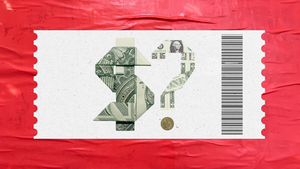A trade group for talent and booking agents in the US has called on the Federal Trade Commission to go further in regulating how pricing is communicated when concert tickets are sold, wanting more transparency regarding any additional fees charged by venues and ticketing companies.
Last month the FTC formally announced a new ‘junk fee rule’, which says that ticket sellers must declare the full cost of buying a ticket upfront, rather than adding additional fees at the final stage of a transaction.
It’s been welcomed by much of the live music industry, including the National Independent Talent Organization. However, it does mean that those extra fees are now more likely to be hidden from the ticket buyer and possibly even the artist, which arguably removes the incentive to keep them to the minimum.
“The new FTC rule is a positive step forward in setting a national standard for event tickets”, says NITO Executive Director Nathaniel Marro. However, he points out, “it does nothing to reduce the junk fees buried inside each concert ticket”. In fact, “transparency that shows the price gap between the amount that an artist wants to charge and the amount the fan pays has been lost with this ruling”.
Therefore, Marro argues, the industry “must still work to keep fees in check to ensure basic entertainment does not become a luxury good”. And more transparency on those fees could help with those efforts.
Ticketing platforms initially advertising the face value of a ticket, and then adding booking and other fees at the final stage of the transaction, has long been controversial, with many calling for an ‘all-in pricing’ approach, where the total price including fees is always declared upfront.
How this is regulated varies from country to country. In the UK, rules set by the Advertising Standards Authority require all-in pricing in most scenarios. In the US, until the FTC rule, regulations differed from state-to-state, although in most states all-in pricing was not required.
Some ticketing platforms voluntarily opted for all-in pricing anyway, even though that could make their tickets look more expensive when fans do a cursory Google search. President Joe Biden then made tackling what he calls ‘junk fees’ a priority, resulting in more ticketing platforms going the all-in pricing route, including Live Nation when its own venues were selling tickets on its Ticketmaster platform.
Of course, while all-in pricing is definitely more consumer friendly, it doesn’t actually remove any of the additional fees, which means the buyer ultimately pays the same price for the ticket.
They just know what they are going to pay from the start of the buying process. And with that information upfront, the buyer may decide that, with the fees included, they can’t or don’t want to buy the ticket. Which means they save time.
The FTC honed in on that time saving benefit when announcing the rule, which also applies to hotel bookings, last month. It stated, “The FTC estimates that the junk fees rule will save consumers up to 53 million hours per year of wasted time spent searching for the total price for live-event tickets and short-term lodging. This time savings is equivalent to more than $11 billion over the next decade”.
However, as NITO highlights, the down-side of all-in pricing is that the fan doesn’t know what the venue and ticketing company are adding on top of the face value ticket price that the artist agreed with a show’s promoter.
Promoters, venues and ticket agents would probably argue that those are necessary fees, given the majority of the main ticket price goes to the artist, and generally the consumer doesn’t need to know how things break down behind the scenes.
However, some artists and agents claim they don’t always have transparency on those fees, and where the fees are substantial and growing, they want the fans to know the extra costs are not caused by the artist. Plus, more transparency might put pressure on venues and ticketing platforms to keep fees down.
It remains to be seen if the FTC can be persuaded to force transparency regarding fees alongside the all-in pricing requirement. Indeed, with Donald Trump taking over as President this weekend, it’s not even clear that the FTC will work all that hard to ensure the all-in pricing rule is adhered to, given it’s a regulation closely linked to Biden.
But it is clear that NITO will continue to call for more transparency in this domain. A letter it has sent to the FTC concludes, “NITO will continue to work with industry stakeholders to limit the costs passed onto consumers and ensure concert goers pay a fair price to see their favourite artists”.

